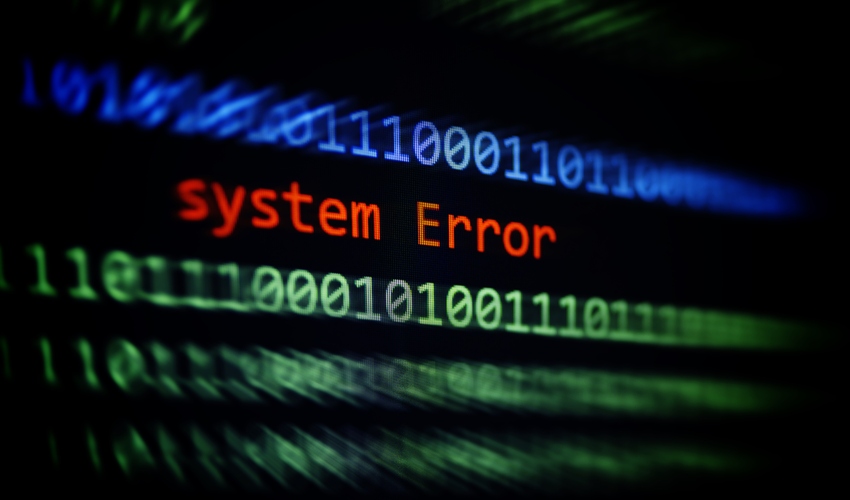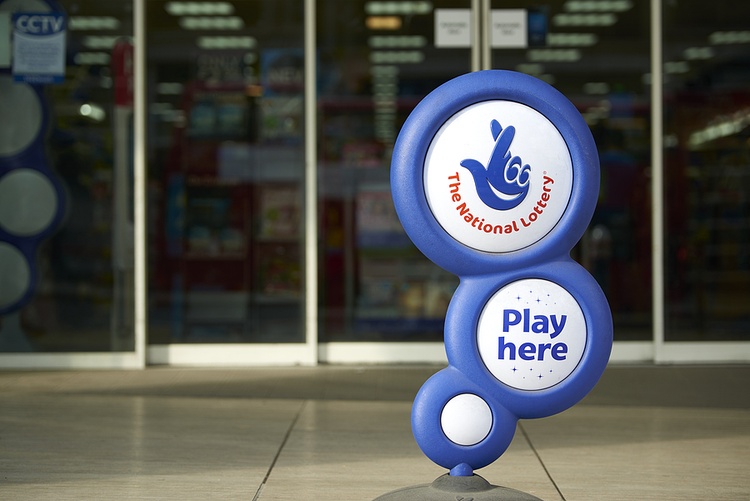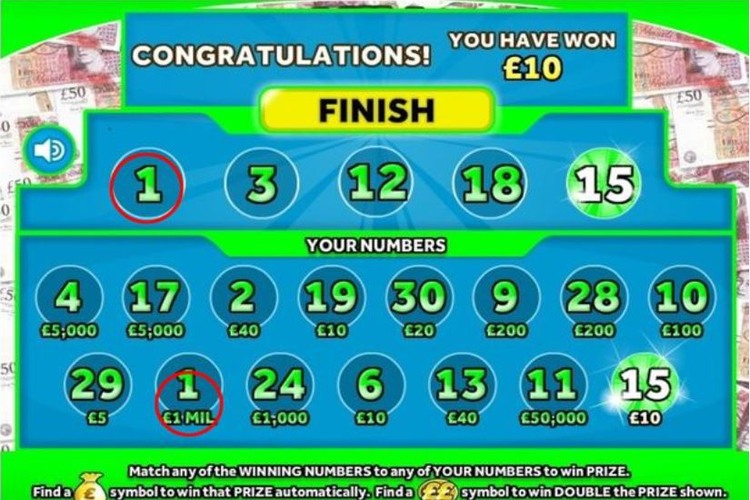Any person who has ever gambled on the lottery or on big jackpot paying slots etc., has imagined that incredibly unlikely moment when a big win is revealed.
We plan what we would do with the money, who we would tell first, how we would react, and all sorts more.
Now imagine that moment actually happens, but when you make contact to claim your big prize, you are told there has been a mistake, and in fact you have only won enough to pay for a Chinese takeaway.
Don’t get me wrong, I love Special Chow Mein as much as the next guy, but I would be absolutely gutted.
This is the exact scenario that Lincolnshire resident, Joan Parker-Grennan faced back in 2015, when she bought an online £5 scratch card from the National Lottery, and won the big money.
Or so she thought…
A Technical Error

The game Joan had bought was nice and simple; the player is given five numbers, and if any of them match the fifteen game numbers then they win the prize associated with that number.
There are a couple of other symbols that create instant wins or double the prize value, but basically, that’s the game.
Well Joan matched two of her numbers; the 1 and the 15.
The 15 was worth £10 and it lit up as a winner as you would expect. The 1 was apparently worth £1 million, but it did not light up as expected, and the game flashed a very worrying congratulations message:
“Congratulations! You have won £10!”
That’s a 100% return on the £5 the game cost, but what about this million quid?
It turns out that a technical error in the backend of the game (the software stuff that uses complex coding etc) had shown incorrect graphics that did not match the game’s official outcome, so that £1 million match should never have been there.
How Can This Happen?
 You might be familiar with these rare but completely possible technical glitches.
You might be familiar with these rare but completely possible technical glitches.
An online game can be thought of as working backwards.
The outcome of the spin or ticket or whatever it is, will be decided the moment you buy it, the rest is just for show.
So an online slot machine knows whether you will win before the reels stop spinning, and an online scratch card knows whether or not you have won before you ‘scratch’ a single bit of it.
The random number generator (RNG) working in the background has already decided the outcome.
What the user sees is just a visual representation of this outcome playing out. It’s what makes it entertaining – but it can also go wrong.
Sometimes, what the RNG decides and what the visual part of the game show do not match up. It’s a ‘gremlins in the system’ sort of situation, which software developers can quickly fix.
However, it can lead to crushing disappointment in situations like this.
Taking the National Lottery to Court
 Since this happened back in 2015, you can appreciate how long it has taken to come to some sort of conclusion.
Since this happened back in 2015, you can appreciate how long it has taken to come to some sort of conclusion.
Unhappy with the explanation she was given, Joan Parker-Grennan got lawyered up and took things further.
It’s been knocking on for a while, but last Tuesday, Mr Justice Jay rejected Mrs Parker-Grennan’s application for a summary judgement in her favour, so now the case will go to trial if she chooses to continue.
Basically, a summary judgement is a way to end a dispute without going to trial – which is costly and time consuming – but only tends to be accepted if one side of the argument is much more likely to win than the other.
In this case, Camelot feel they have a strong chance of winning at trial while Mrs Parker Grennan’s team argued that they did not have a strong chance of winning at trial.
The judge decided they had enough of a chance to make the trial worth going ahead with, and that is where we are up to now.
I can’t see it going her way in my totally amateur opinion, the terms and conditions usually cover this sort of thing, but you’d think Camelot would offer her something as a gesture of good will since it was their mistake and must have been an awful blow for poor Joan.

